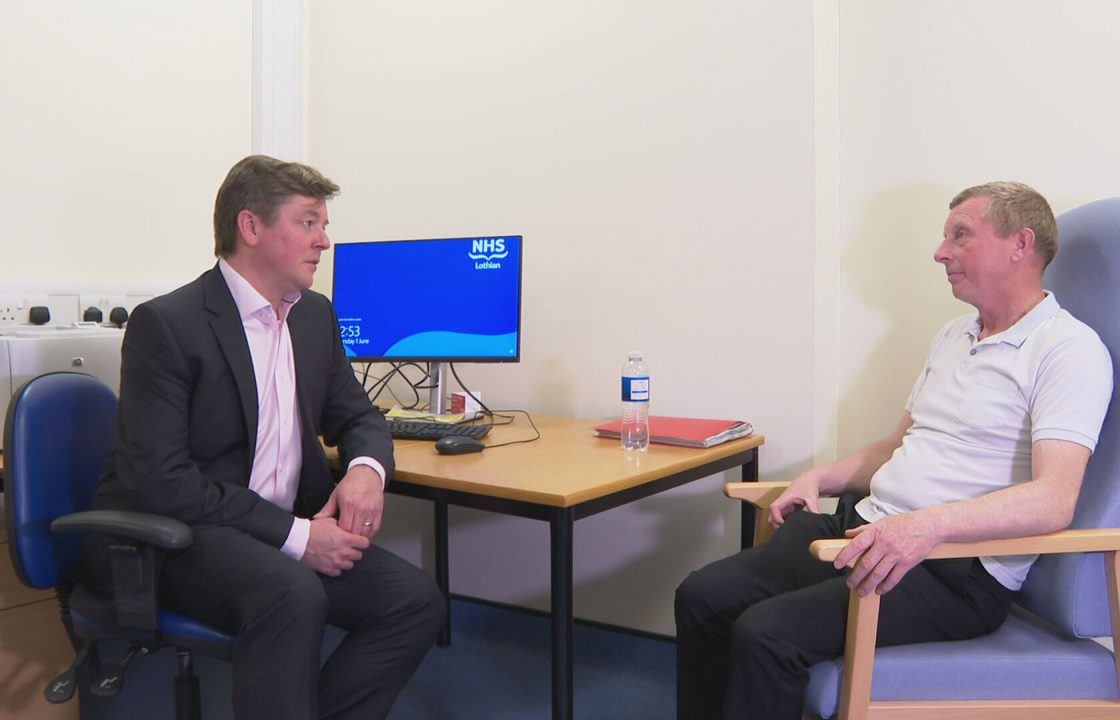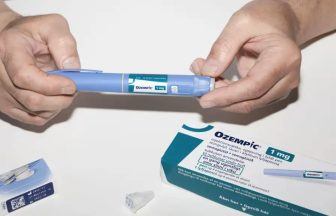A medical research study involving cancer patients could lead to “revolutionary” changes in the way the disease is managed in the future, according to experts.
The University of Edinburgh has been working with NHS Lothian to carry out “liquid biopsies”, a process that involves extracting DNA from blood samples to check for traces of the illness.
Ian Brewser, from Musselburgh, is among 200 patients taking part in the pilot study.
The 59-year-old plant operator, who will have blood tests ever three months, was diagnosed with stage four tongue cancer at the end of 2020, and given the all-clear the following summer.
However, a year later, his most recent blood sample showed signs of cancer cells.
He was brought in for a CT scan and further checks. It was found that the disease had spread to his lymph nodes and chest.
“So I feel like they’ve caught it early,” he told STV News.
“They started treatment in January, so I’m grateful that it was traced because I could have gone for a year, two years, who knows, before any symptoms appeared, and by that time it could have been too late, so I’m glad.”
Professor Tim Aitman, professor of molecular pathology and genetics at the University of Edinburgh, said: “The idea that you can monitor a cancer by looking at the DNA that comes from the tumour into the bloodstream is really revolutionary and I think it is going to change the way cancer is managed.
“For example, it may be possible at some point in time that we know that imaging won’t be necessary and we can just monitor cancer treatments by a blood test.”
The study only covers patients with oropharyngeal cancers, which affect the mouth and throat.
Scotland has higher rates of these types of cancer than other parts of the UK. It’s thought to be linked to a higher prevalence of smoking.
But there are also many examples of people falling ill with viral-related cancers.
Human Papiloma Virus (HPV) is an increasing cause of head and neck cancers in the UK and globally.
After the success of the pilot study in the Lothian area, it’s being rolled out across Scotland.
Iain Nixon, consultant ear, nose and throat surgeon at NHS Lothian, said that he expects liquid biopsies to be “transformative” in the management of cancer over the next decade.
He added: “We know that if you catch cancer early, outcomes of treatment are better.
“That’s been shown in a number of different disease models, so we have a few patients now who have benefitted from our trial in Lothian, and it’s now being spun out across all of NHS Scotland.
“It seems to be a very acceptable mode of measuring cancer recurrence in patients.
“We have surveyed patient groups, and there is very strong patient interest in liquid biopsy as a method for screening for cancer.”
Follow STV News on WhatsApp
Scan the QR code on your mobile device for all the latest news from around the country


 STV News
STV News
























